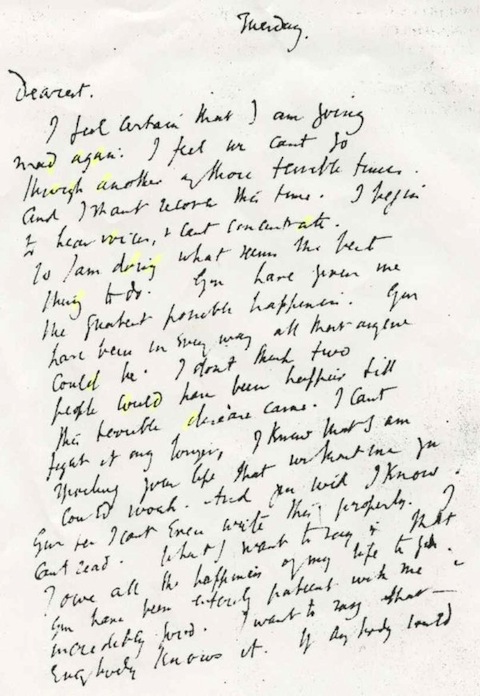On Friday 28th March, 1941, Virginia Woolf walked across the downs to the flooding River Ouse near her beloved home in Sussex, as she would have done so many, many times before; but on this day she filled her coat pockets with stones aplenty and just kept on walking into the watery depths.
On her desk she had left a note to Leonard, written a few days previously. Her body was not found until the 18th April. In the midst of war and tormented by mental illness and personal anguish, Virginia Woolf departed the mortal world.
Not long ago I dug up this review at The New Yorker by W.H. Auden of the so-called “Writer’s Diary” published in 1954 – and admiring and generous it indeed is, of Woolf in particular but also of a neglected generation of women writers in general. I don’t think Auden lived long enough to read the whole kit and caboodle; which I suggest would have delighted him even more. He finished his piece thus:
I do not know how Virginia Woolf is thought of by the younger literary generation; I do know that by my own, even in the palmiest days of social consciousness, she was admired and loved much more than she realized. I do not know if she is going to exert an influence on the future development of the novel—I rather suspect that her style and her vision were so unique that influence would only result in tame imitation—but I cannot imagine a time, however bleak, or a writer, whatever his school, when and for whom her devotion to her art, her industry, her severity with herself—above all, her passionate love, not only or chiefly for the big moments of life but also for its daily humdrum “sausage-and-haddock” details—will not remain an example that is at once an inspiration and a judge. […]
“A Consciousness of Reality” by W. H. Auden in March 6, 1954 issue of “The New Yorker“.
In retrospect, Auden would perhaps have been surprised at just how profound and enduring Woolf’s influence has been on following generations of writers and readers alike, and that it is an influence that is intrinsically emotional and psychological rather than stylistic – for most know only too well, that to be so tempted would certainly end in, what Auden rightly predicted as, “tame imitation”.


